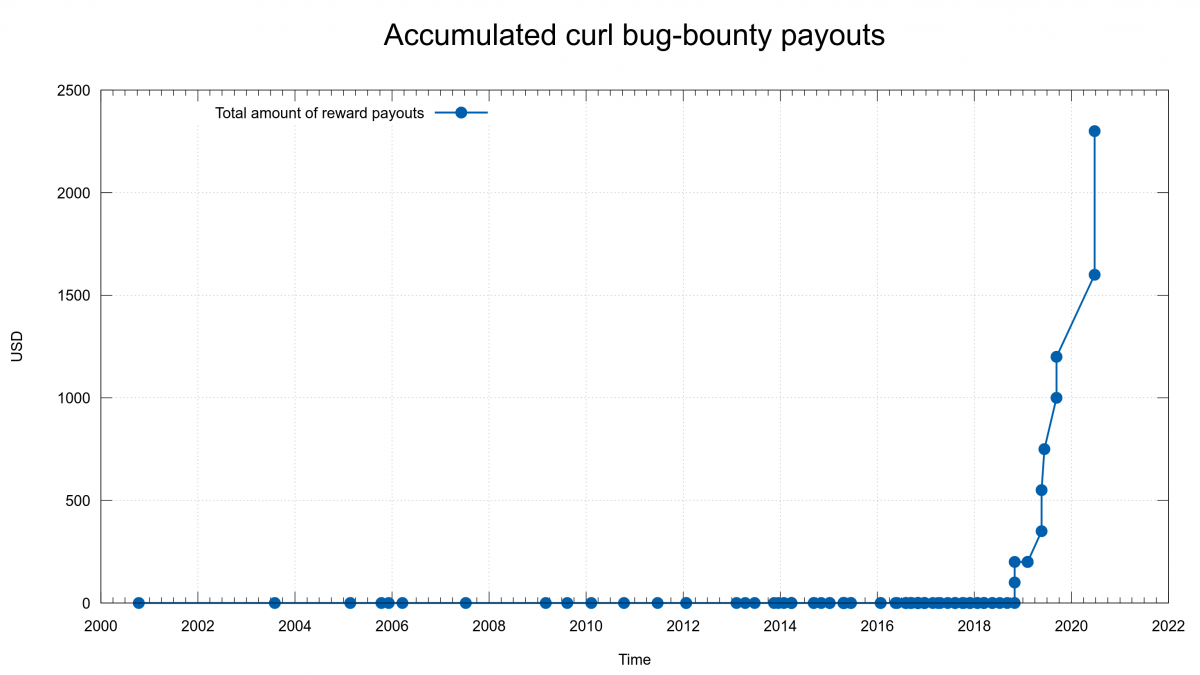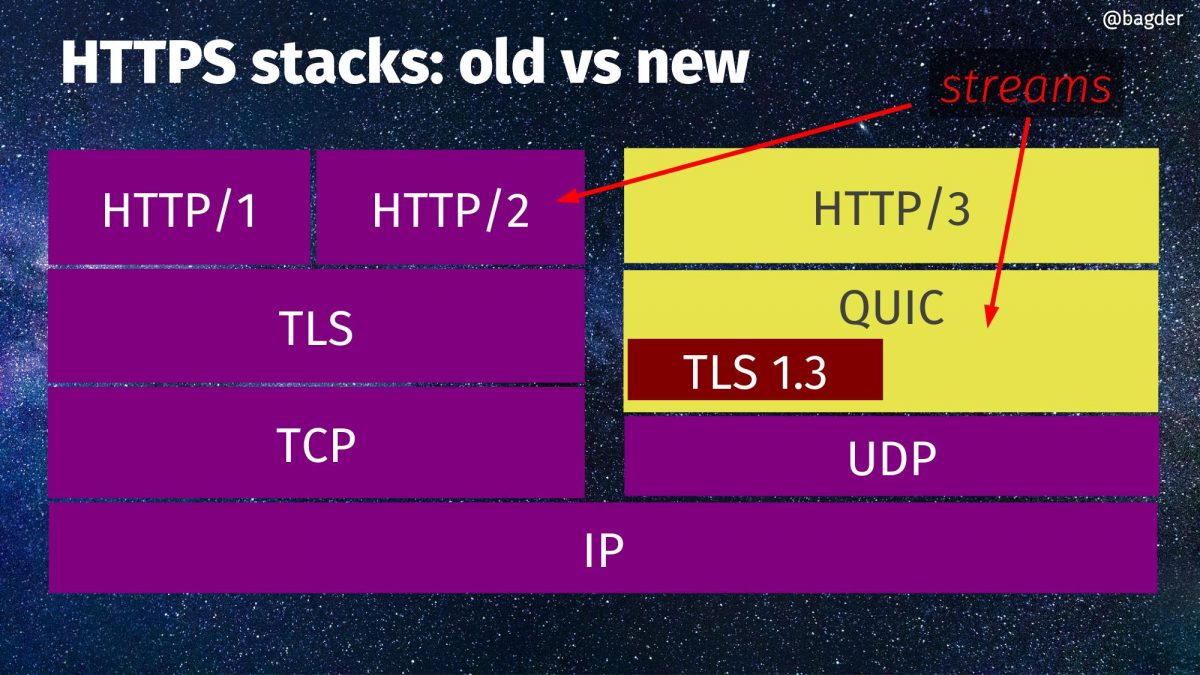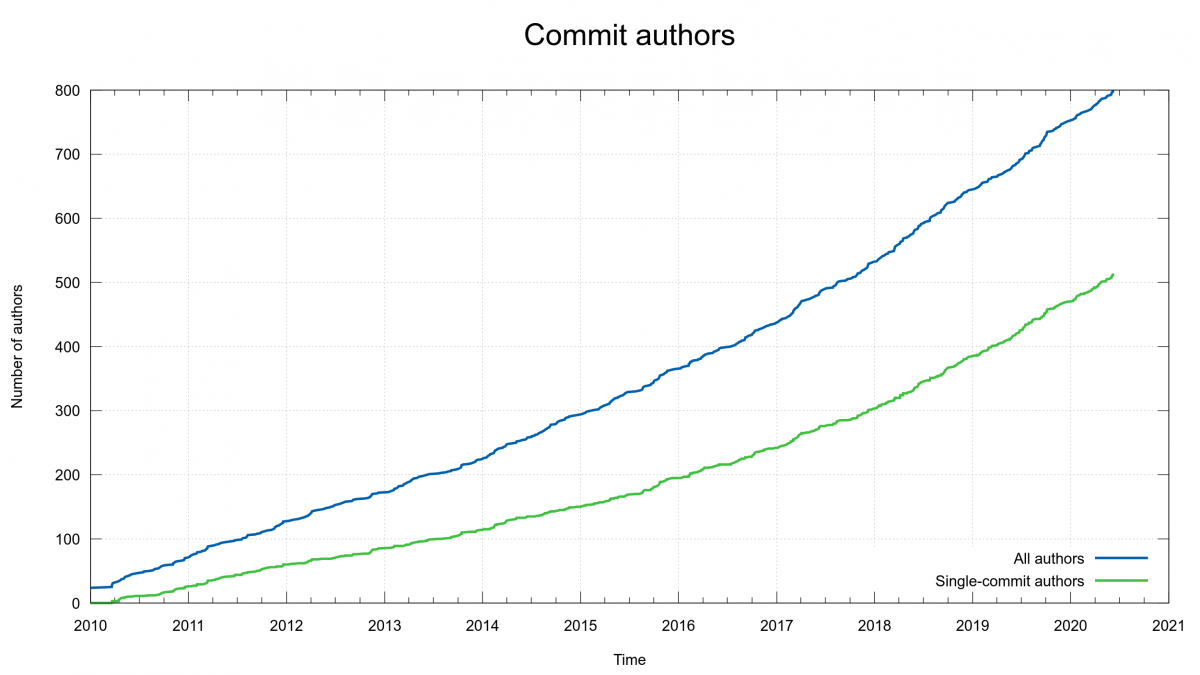A while ago I tweeted the good news that we’ve handed over our largest single monetary reward yet in the curl bug-bounty program: 700 USD. We announced this security problem in association with the curl 7.71.0 release the other day.
Someone responded to me and wanted this clarified: we award 700 USD to someone for reporting a curl bug that potentially affects users on virtually every computer system out there – while Apple just days earlier awarded a researcher 100,000 USD for an Apple-specific security flaw.
The difference in “amplitude” is notable.
A bug-bounty
I think first we should start with appreciating that we have a bug-bounty program at all! Most open source projects don’t, and we didn’t have any program like this for the first twenty or so years. Our program is just getting started and we’re getting up to speed.
Donations only
How can we in the curl project hand out any money at all? We get donations from companies and individuals. This is the only source of funds we have. We can only give away rewards if we have enough donations in our fund.
When we started the bug-bounty, we also rather recently had started to get donations (to our Open Collective fund) and we were careful to not promise higher amounts than we would be able to pay, as we couldn’t be sure how many problems people would report and exactly how it would take off.
The more donations the larger the rewards
Over time it has gradually become clear that we’re getting donations at a level and frequency that far surpasses what we’re handing out as bug-bounty rewards. As a direct result of that, we’ve agreed in the the curl security team to increase the amounts.
For all security reports we get now that end up in a confirmed security advisory, we will increase the handed out award amount – until we reach a level we feel we can be proud of and stand for. I think that level should be more than 1,000 USD even for the lowest graded issues – and maybe ten times that amount for an issue graded “high”. We will however never get even within a few magnitudes of what the giants can offer.

Are we improving security-wise?
The graph with number of reported CVEs per year shows that we started to get a serious number of reports in 2013 (5 reports) and it also seems to show that we’ve passed the peak. I’m not sure we have enough enough data and evidence to back this up, but I’m convinced we do a lot of things much better in the project now that should help to keep the amount of reports down going forward. In a few years when we look back we can see if I was right.
We’re at mid year 2020 now with only two reports so far, which if we keep this rate will make this the best CVE-year after 2012. This, while we offer more money than ever for reported issues and we have a larger amount of code than ever to find problems in.

The companies surf along
One company suggests that they will chip in and pay for an increased curl bug bounty if the problem affects their use case, but for some reason the problems just never seem to affect them and I’ve pretty much stopped bothering to even ask them.
curl is shipped with a large number of operating systems and in a large number of applications but yet not even the large volume users participate in the curl bug bounty program but leave it to us (and they rarely even donate). Perhaps you can report curl security issues to them and have a chance of a higher reward?
You would possibly imagine that these companies should be keen on helping us out to indirectly secure users of their operating systems and applications, but no. We’re an open source project. They can use our products for free and they do, and our products improve their end products. But if there’s a problem in our stuff, that issue is ours to sort out and fix and those companies can then subsequently upgrade to the corrected version…
This is not a complaint, just an observation. I personally appreciate the freedom this gives us.
What can you do to help?
Help us review code. Report bugs. Report all security related problems you can find or suspect exists. Get your company to sponsor us. Write awesome pull requests that improve curl and the way it does things. Use curl and libcurl in your programs and projects. Buy commercial curl support from the best and only provider of commercial curl support.















